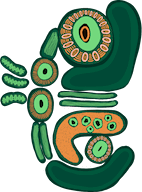
Asthma And Oral Health
Close to three million Australians have asthma, meaning around one in nine people are affected by this respiratory disease.[1] And although we understand a lot about how asthma can be triggered and attacks treated, the link between asthma and oral health largely goes unknown by those who suffer from it. Evidence has shown a common outcome of using asthma medication is for asthmatics to be at a higher risk of developing cavities. This is because of changes in the type and quantity of saliva they produce. Asthmatics are also more likely to breathe through their mouth, causing dryness (xerostomia) and further changes in their saliva’s pH level. Essentially, the protective mechanism from saliva in helping to prevent tooth decay is not the same.
Asthma is also a risk factor for other oral health problems, including periodontal (gum) disease – particularly gingivitis and candidiasis (thrush). Asthmatics are also more likely to develop tooth erosion and subsequently, tooth decay, also called cavities. But this doesn’t mean asthmatics have to experience negative oral health consequences. With some additional knowledge and a proactive relationship with a dentist, many of the harmful effects of asthma medication on teeth and gums can be minimised.
How to reduce tooth decay when you’re an asthmatic
- Try not to brush your teeth right after you’ve used your inhaler; instead, rinse your mouth with water to remove residue or if the taste is bothering you. Steroids can further damage already weakened enamel. Speak with your doctor about using a spacer with your inhaler[2]. This will help to direct the medication directly into your lungs, rather than onto your teeth and gums.
- Be detailed with brushing your teeth. Use a toothpaste containing fluoride at least twice a day and floss daily. Fluoride mouthwashes can help to re-mineralise tooth enamel.
- Limit sweet foods and avoid drinking soft drinks, juice or sweetened drinks. They are high in sugar and can lead to decay.
- Consider using a ‘dry-mouth’ wash or gel if dry mouth is a problem. Chew sugarless gum to promote your saliva flow and drink plenty of plain water to keep hydrated.
- Book an appointment with your dentist every six months or more often if advised to.
- https://nibdental.com.au/wp-content/uploads/2020/09/NIB_News_AsthmaOralHealth_2_0920.jpg
At your dental appointments
- Let the receptionist know if cool morning air is likely to trigger your asthma. If so, it could help to make an appointment for later in the day.
- Let your dentist know if you or your children are asthmatic and provide them with a list of the medications you’re taking. Remember to bring your preventer and reliever inhalers to your appointment.
- Take a copy of your asthma management plan[3]. Make sure you have an up to date copy to share.
[1] https://asthma.org.au/about-asthma/understanding-asthma/statistics
[2] https://onlinelibrary.wiley.com/doi/epdf/10.1111/j.1834-7819.2010.01226.x
[3] https://asthma.org.au/about-asthma/understanding-asthma/statistics
